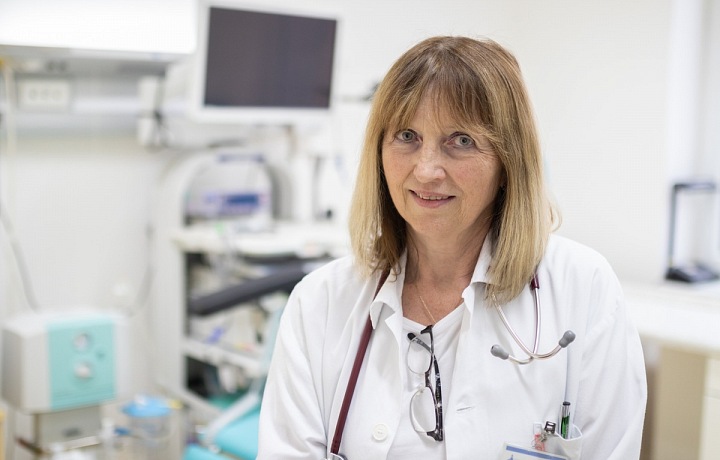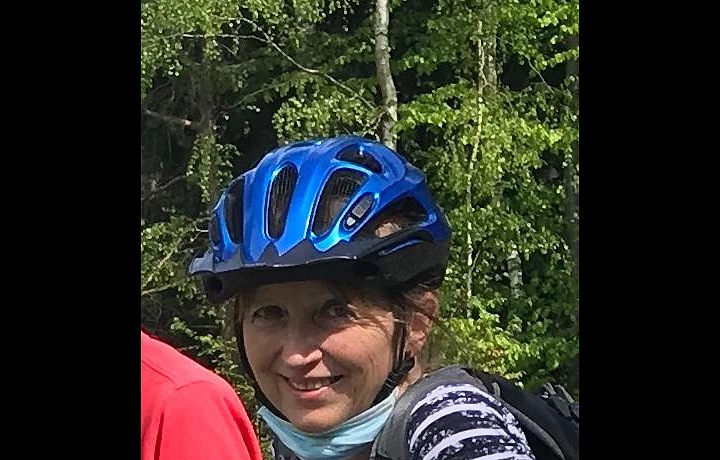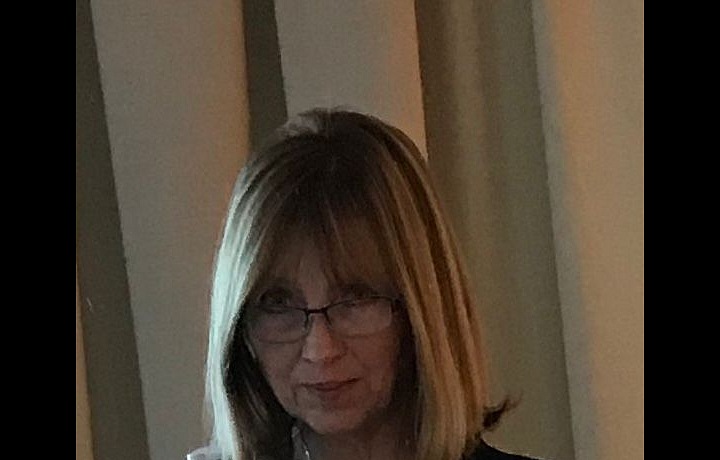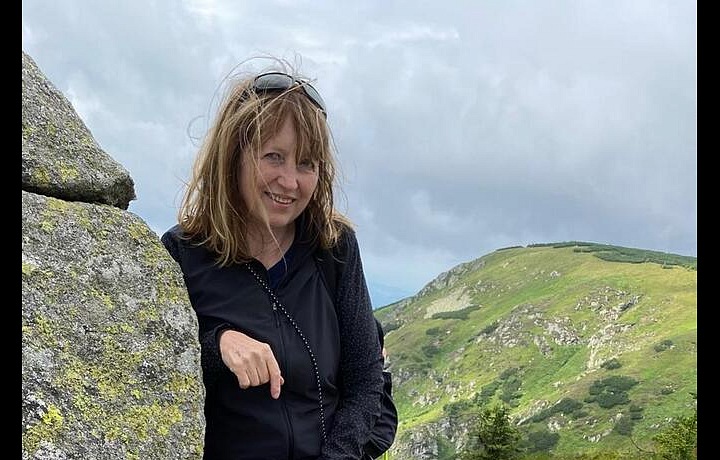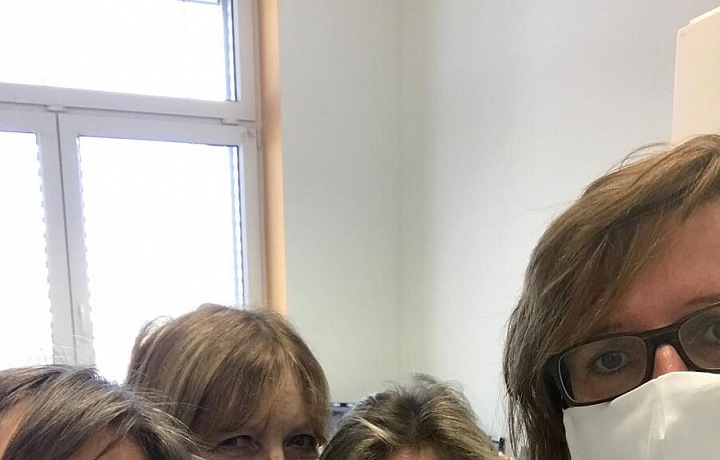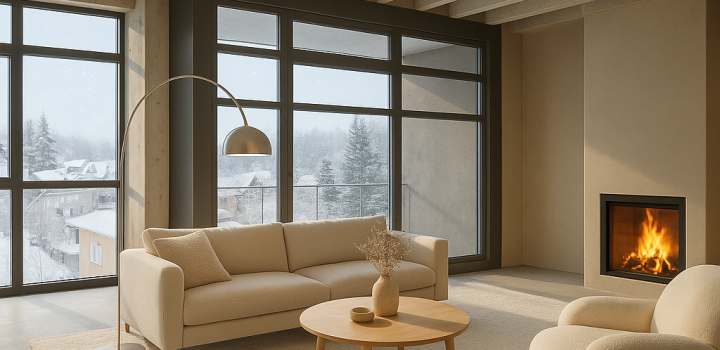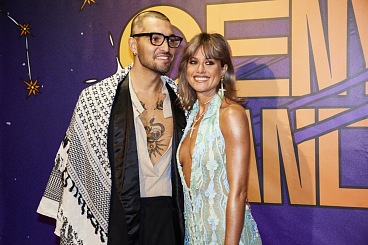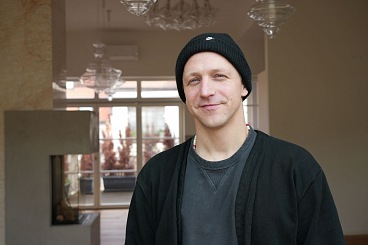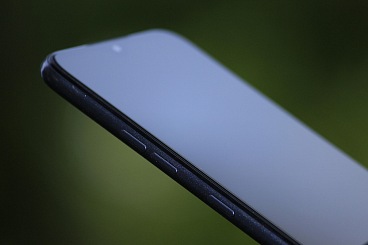Fast Confession - Head of the pulmonary department MUDr. Jana Keilová: Most COVID-positive patients are unvaccinated
The likeable MUDr. Jana Keilová is one of the Czech experts in the treatment of lung diseases. She has been the head of the pulmonary department at the Kladno Regional Hospital for eighteen years, but she has been taking care of her patients here with full commitment for more than thirty years. Together with her team, she takes care of patients with respiratory diseases, both inflammatory and cancerous in nature. They provide not only specialized, centre-based treatment, but also diagnostic one. Their scope is really wide. In an interview with LP-Life.com, she talked about how lung diseases can be prevented, about the third dose of the COVID vaccine, as well as long-term issues in patients who have had this disease.
You are a specialist in the treatment of lung diseases and head of the pulmonary department at the Kladno Regional Hospital, where patients with various lung diseases are treated. Which are the most common and, on the contrary, the rarest?
The most common would be chronic lung disease in smokers, obviously, these make the most of our patients. Then asthma, where we share the load with allergists. And the rarest are probably interstitial lung processes.
Very few people think about their lungs when they think about prevention and taking care of their health. Yet, it's an extremely important organ. Its damage is actually the third most common cause of death. How can lung disease be prevented in everyday life and how should everyone take the best possible care of their lungs?
Smoking is clearly a risk factor. We should make sure that we engage in sports and have a healthy diet. This will actually support the overall health of the whole organism.
As a lung doctor, what advice would you give to anyone who wants to breathe properly and efficiently to improve their lung volume? And is this even important?
Well, again, sport plays a big part in this, and I don't just mean active, physically demanding sport. Even just hiking or cycling is enough; then, of course, breathing properly, that's terribly important.
The infection with the new coronavirus and its mutations is also very topical at the moment. In what numbers have such patients been seen in your ward since the beginning of this new disease spread and what care do you provide for them? How do you treat them?
We treat them the standard way. In the spring, our ward became a COVID ward, but only for patients with milder conditions. We treat them as recommended. Now we are mostly seeing patients with post-COVID issues and, unfortunately, those with COVID are starting to appear again.
Did you personally anticipate an increase in coronavirus infections as autumn comes and the temperatures drop? And what is your estimate for the rest of this year?
I don't have an estimate, but I expected it because it's kind of similar to other viral diseases.
Have any of your patients with this disease really been on the edge of life and death and have you been able to save them?
There have been a few patients like that, but we've mostly transferred them to the intensive care unit, where there’s been a good fifty percent success rate.
Another category of patients has just arisen in the context of the coronavirus pandemic. People with long-term problems after COVID form a completely new and large category of patients. What kind of care do you provide to these patients, and what specific problems do they have?
The complaints are varied, but the ones that concern us are mostly coughing, shortness of breath and chest pain. Then there are a lot of problems that fall into the neurology and orthopaedics fields. We refer our patients for respiratory rehabilitation. Of course, at the stage they come in, they are possibly still treated with medication, usually corticosteroids. Spa treatment comes into consideration as well.
Where do you stand concerning the COVID vaccine? Most of the older and middle-aged generations have already been vaccinated and there is a lot of discussion at the moment about the youngest generation, and that is our children. What is your opinion?
I'm certainly in favour of vaccination, but of course, it's a bit of a touchy subject, because in the youngest children category, the monitoring has not yet been completed on a larger number of children. Plus, parents are certainly sensitive about their children's health. So I’m in favour of vaccination, yet probably with caution.
Several hospitals and medical facilities in the Czech Republic use the MLS laser in the treatment of patients with both COVID and post-COVID syndrome. Your department is one of them. How does this device help you in your work and how does it benefit your patients?
This device does not fall directly under our department, it falls under rehabilitation. When patients were lying here during COVID, several of our patients were treated with this device. I don't have enough experience of the results of this treatment quite yet, but more or less from the information of my colleagues, it has had a positive outcome in the sense that it prevented the long-term consequences of this disease.
You cooperate with the Our Lungs Foundation, which was established during the first wave of the COVID-19 pandemic to support the treatment of respiratory diseases in adults and children. As a part of this collaboration, a fundraiser for another machine for your department is currently underway. What is this specific device and how does it contribute to patient care?
It is an ultrasound machine which would be very helpful to us as it is mobile. We wouldn't have to ask for help from another department, specifically the radiology department, because as willing as they are, their equipment is not at hand after all. It would help us to diagnose the disease, to target pathological findings in the lungs and we could work with the machine directly in the inpatient ward.
On behalf of LP-Life.com, I wish you to get the device to your ward as soon as possible and thank you very much for the interview.


